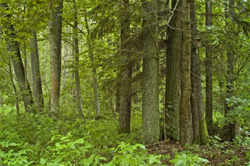Testing for a better sylvan industry
As a hardwood tree, the ash is especially favoured as an indigenous tree to the Flanders region due to its economic value. It is often cited as a potential candidate to replace the widely used poplar tree especially in areas where afforestation is to occur. In order to ensure the imported seeds present no genetic threat to the native endemic populations, provenance testing was conducted. Ecological demand for the restoration of indigenous forest has caused the forest management industry to reevaluate the trees they should grow, but not necessarily only in financial terms. Early assessment of imported seed performance conducted in nurseries reveals that seed-specific criteria play a vital role. For example, stage of seed collection, storage, transport and nursery conditions may all affect how the seeds perform. Tests, amongst many others, were conducted in order to assess non-native suitability with regard to local growth conditions. It was intended that a list of suitable recommended provenances would be drafted in order to benefit local governmental and private foresters.







